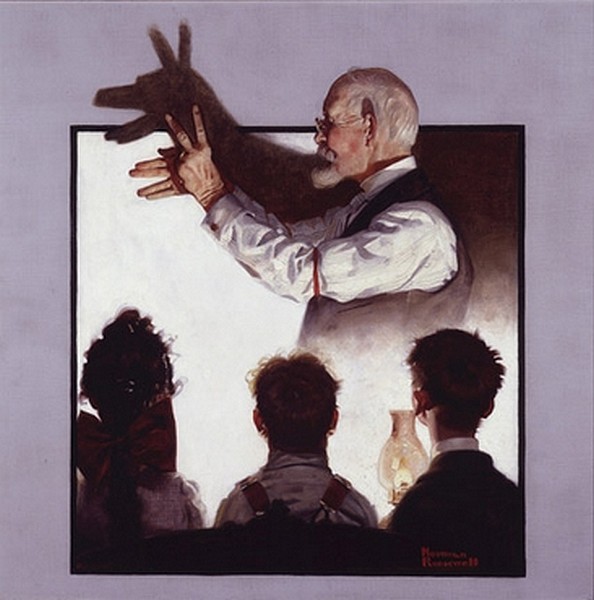
That doesn't mean that Ives ignored the European tradition which also belonged to his culture, and some of his songs are absolutely German such as Feldeinsemkeit or Ich grolle nicht, that we usually known as Brahms's and Schumann's songs. Ives incorporated into the old tradition those new American traditions: the anthems from the former Thirteen Colonies; the plantation songs and the spirituals from black slaves, the cow-boy songs (which, in turn, came from European folklore, mostly Irish); the minstrel songs, the seed of American musical theatre; and, finally, the native American folklore. He brought together every sort of music that had been made or recovered in America during the last 150 years.
For this purpose, in addition to the previous work of the composers who prepared his way, the original spirit that Ives had, became essential. Perhaps too original for his age, it was at times so shocking that it wasn't until Copland, Bernstein and Hermann recovered his music that he was given some credit. Music that, by the way, he wrote at nights and during the weekends; at working hours, he used to work in the insurance business (he began at 18 as a salesman and eventually, he had his own company).
The song we are listening this week is a good example of his novelty. It was composed in 1897, when he was 23, and the lyrics are by Ives too. Memories is about two childhood memories; in the beginning of this post I mentioned the first one; nonetheless, the two boys are unlikely to be waiting for the start of an opera, but most probable, for a vaudeville, with a band instead of an orchestra. The boys are so excited that the indication in the score is “As fast as it will go”, what a challenge for singers! The second part is so different that they might seem two separated songs, although Ives clearly indicated that it was a song with two parts: A. Very Pleasant and B. Rather Sad. Now the narrator hears a tune that reminds him of his uncle, a tune as threadbare as that "old red shawl". Ives is referring here to My Mother's Old Red Schawl, a song by Charles Morelad that was very popular in the end of the 19th century. It remains unclear, but that the song could have been performed at the show that the two boys were attending, and so the two memories would be linked. Anyhow, this second part that would be so melancholic as an isolated song, becomes a kind of a joke by contrast to the first.
Memories is one of the most famous songs by Charles Ives, I hope you like it; I chose the performance of Susan Graham and Pierre Laurent Aimard.
A. Very Pleasant
We're sitting in the opera house;
We're waiting for the curtain to arise
With wonders for our eyes;
We're feeling pretty gay,
And well we may,
"O, Jimmy, look!" I say,
"The band is tuning up
And soon will start to play."
We whistle and we hum,
Beat time with the drum.
We're sitting in the opera house;
We're waiting for the curtain to arise
With wonders for our eyes,
A feeling of expectancy,
A certain kind of ecstasy,
Expectancy and ecstasy... Sh's's's.
B. Rather Sad
From the street a strain on my ear doth fall,
A tune as threadbare as that "old red shawl,"
It is tattered, it is torn,
It shows signs of being worn,
It's the tune my Uncle hummed from early morn,
'Twas a common little thing and kind 'a sweet,
But 'twas sad and seemed to slow up both his feet;
I can see him shuffling down
To the barn or to the town,
A humming.